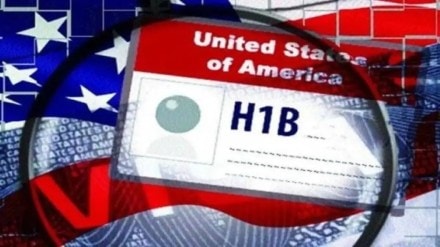The H-1B lottery system is set to witness some significant changes. The Trump administration has proposed an H-1B wage-based selection procedure in an effort to revamp the hiring of foreign workers by US companies.
The proposed New Wage-Based System is to establish a wage-based allocation process and choose H-1B workers based on their earnings; the higher the compensation paid by the US firm, the better the chances of obtaining an H-1B visa.
National Foundation For American Policy (NFAP) has released a report stating that the proposed rule is controversial for at least two reasons:
First, the law does not appear to allow USCIS to select H-1B petitions by seniority or salary level.
Second, the method chosen to prioritize H-1B petitions does not measure skill level, as the proposed rule implies, but is a Department of Labor tool to divide job classifications based on the experience and related factors needed to perform in the position.
The NFAP report goes on to say – Employers use the DOL’s Occupational Employment and Wage Statistics (OEWS) system to determine prevailing wages.
“The prevailing wage determinations are based on data collected by the Department of Labor’s Bureau of Labor Statistics (BLS) in (1) the OEWS survey and (2) the National Compensation Survey (NCS).
These data generate two wage averages. Then, the Office of Foreign Labor Certification (FLC) uses a formula created by Congress in 2004 to create four wage levels,” explained an NFAP analysis.
Attorney Vic Goel of Goel & Anderson, in the NFAP report says, “The Department of Labor’s OEWS wage levels (I–IV) are designed as a job classification tool that reflects the amount of experience, supervision and responsibility required for a position, not an assessment of whether the worker is ‘highly skilled’ or ‘less skilled. A Level I role is simply an entry-level version of the occupation, while Level IV is a senior-level position requiring greater judgment and independence.”
USCIS, however, is recasting these categories for its own policy purposes.
In the proposed rule, USCIS suggests that higher wage levels equate to higher skill and greater economic value, and it uses this framing to justify weighting the lottery in favor of Level III and IV beneficiaries.
Wage levels don’t correspond to skill in the way USCIS suggests, and instead they correspond to how DOL has structured job progression for prevailing wage purposes.”
Goel explains that the two systems are not compatible. DOL wage levels are designed to ensure fair pay in relation to job requirements.
“USCIS lottery weighting attempts to twist those same levels into a proxy for ‘skill’ and ‘best and brightest,’” he said.
Salary levels are typically determined by the amount of experience a position requires. Positions for individuals offered Level I salaries are usually for early-career professionals, such as recent international students. Level IV salaries are for positions generally filled by individuals with several years of experience, including managers.
